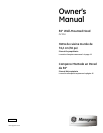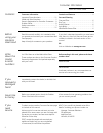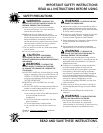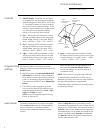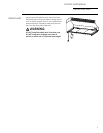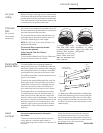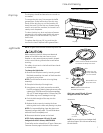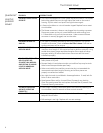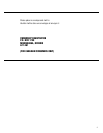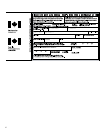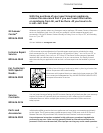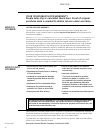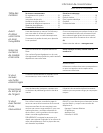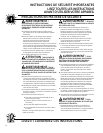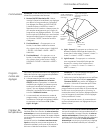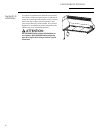
3
Use this unit only in the manner intended
by the manufacturer. If you have questions,
contact the manufacturer.
Before servicing or cleaning unit, switch
power off at service panel and lock the service
disconnecting means to prevent power from
being switched on accidentally. When the
service disconnecting means cannot be locked,
securely fasten a prominent warning device,
such as a tag, to the service panel.
Do not use this unit with any solid-state speed-
control device.
This unit must be grounded.
SMOTHER FLAMES with a close-fitting lid, cookie
sheet, or metal tray, then turn off the burner. BE
CAREFUL TO PREVENT BURNS. If the flames do
not go out immediately, EVACUATE AND CALL
THE FIRE DEPARTMENT.
NEVER PICK UP A FLAMING PAN—You may
be burned.
DO NOT USE WATER, including wet dishcloths or
towels—a violent steam explosion will result.
Use an extinguisher ONLY if:
You know you have a Class ABC extinguisher,
and you already know how
to operate it.
The fire is small and contained in the area
where it started.
The fire department is being called.
You can fight the fire with your back to an
exit.
*Based on “Kitchen Firesafety Tips” published
by NFPA.
Never leave surface units unattended at high or
medium settings. Boilovers cause smoking and
greasy spillovers that may ignite. Heat oils slowly
on low or medium settings.
Always turn hood ON when cooking at high heat
or when flambéing food (i.e. Crepes Suzette,
Cherries Jubilee, Peppercorn Beef Flambé).
Clean ventilating fans frequently. Grease should
not be allowed to accumulate on fan
or filter.
Use proper pan size. Always use cookware
appropriate for the size of the surface element.
Installation work and electrical wiring must be
done by qualified person(s) in accordance with all
applicable codes and standards, including fire-
related construction.
Sufficient air is needed for proper combustion
and exhausting of gases through the flue
(chimney) of fuel burning equipment to prevent
back drafting. Follow the heating equipment
manufacturer’s guideline and safety standards
such as those published by the National Fire
Protection Association (NFPA), and the American
Society for Heating, Refrigeration and Air
Conditioning Engineers (ASHRAE), and the local
code authorities.
When cutting or drilling into wall or ceiling, do
not damage electrical wiring and other hidden
utilities.
Ducted fans must always be vented to the
outdoors.
• Do not attempt to repair or replace any
part of your hood unless it is specifically
recommended in this manual. All other servicing
should be referred to a qualified technician.



